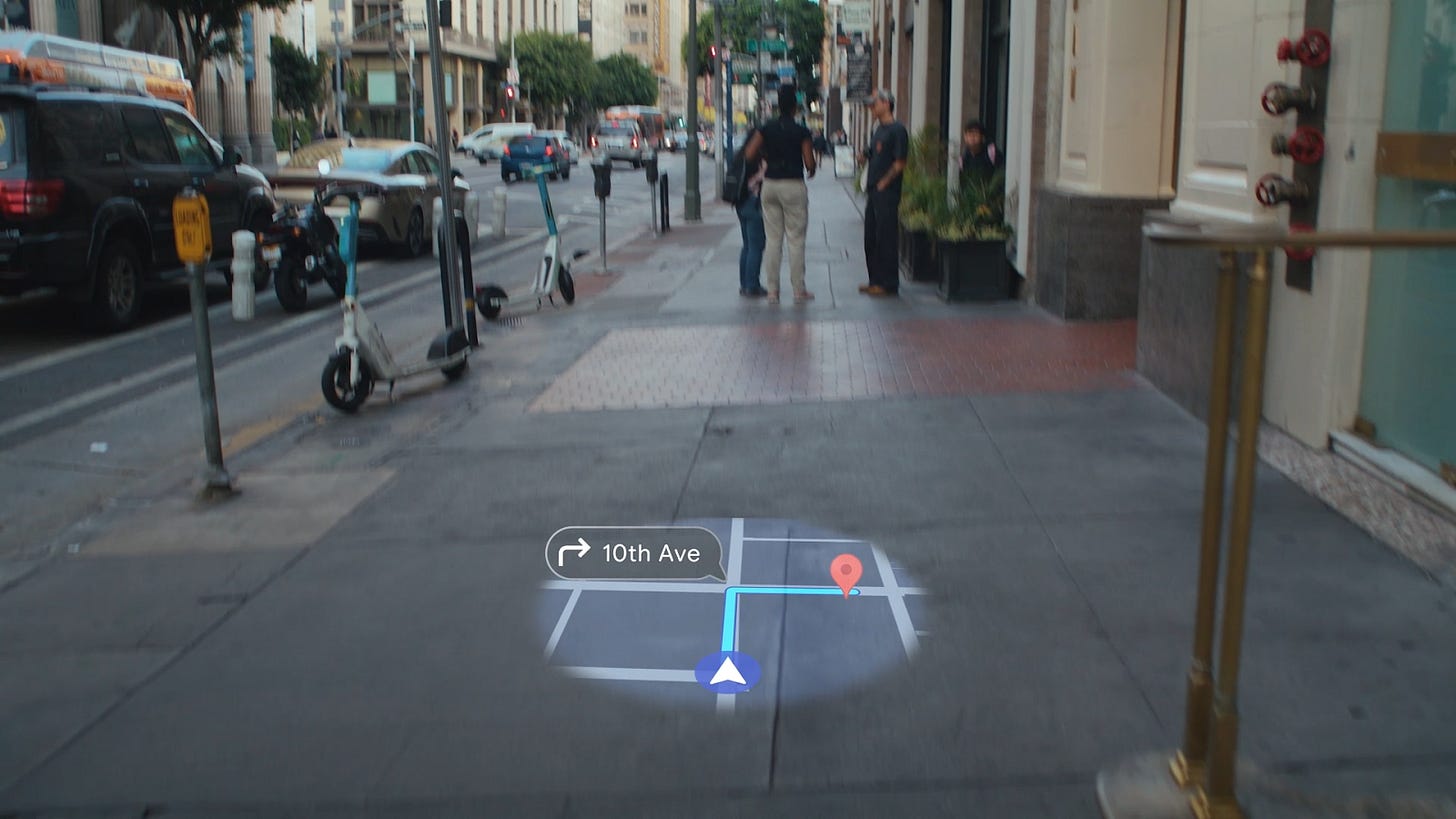Google Unveils Android XR: A Bold Step Back Into Extended Reality
Bringing AI and immersive experiences together to shape the future of XR
If you would like exposure to the biggest opportunities in XR -- access our Investor Deck for Hartmann Metaverse Ventures Fund II or schedule a call with our team.
Google is making a fresh push into the world of headsets and extended reality (XR) with the launch of Android XR, a new operating system designed specifically for XR devices like headsets and smart glasses. Working alongside partners like Samsung, Google is gearing up for device launches as early as next year, with the platform now available for developers to begin building experiences, with a Hartmann portfolio company for XR wellness, Tripp, starting development.
The XR Market Explosion
The global XR market is experiencing unprecedented growth, with projections suggesting it could reach $450 billion by 2030. This surge is driven by technological advances in chip computing power, display technology, and the growing integration of AI. Enterprise adoption has been particularly strong, with companies using XR for training, remote collaboration, and design visualization. Additionally, consumer VR has grown meaningfully throughout the 2020s thanks to Meta’s consumer Quest line headsets.
Meta's Dominant Position
Meta has emerged as a clear leader in the consumer XR space, with its Quest series becoming the de facto standard for VR headsets. The consumer standalone Quest line of headsets , has seen significant success, shipping over 30 million units and establishing a thriving ecosystem of games and applications. The company's partnership with Ray-Ban for smart glasses has also proven more successful than expected, showing there's appetite for lighter, more casual XR experiences in addition to full tracking.
A New Era for Apps and AI
Android XR aims to enhance how users interact with immersive forms of existing technology by offering XR-specific versions of popular Google apps like Maps, Photos, and YouTube. A revamped version of Chrome will support multitasking, while the system will also accommodate existing Play Store apps, mirroring Apple's approach with iPad apps on Vision Pro. Central to the experience is Google's Gemini AI, which promises to make XR more intuitive and seamless.
Apple Vision Pro's Impact
Apple's entry into the market with Vision Pro has significantly raised the stakes. Despite its premium pricing, the device has garnered attention for its sophisticated eye and hand tracking, high-resolution displays, and seamless integration with Apple's ecosystem. Its focus on mixed reality and productivity applications has expanded the conversation beyond gaming and entertainment, potentially opening new markets for XR technology.
Bridging Virtual and Real Worlds The term "XR" reflects Google's ambition to cover the entire spectrum of virtual reality (VR), augmented reality (AR), and mixed reality (MR). Android XR-powered devices are expected to transition effortlessly between virtual and real environments. This includes standalone headsets, phone-connected accessories, and even audio-only devices like Ray-Ban Meta Smart Glasses.
Lessons from the Past, Eyes on the Future
Google has tried its hand at headsets before with projects like Glass, Cardboard, and Daydream, but none gained widespread adoption. Android XR represents a culmination of Google's investments in AI, the Android ecosystem, and wearable technology. A flagship device developed in partnership with Samsung, codenamed Moohan, is slated for release next year.
This also comes at a time when the XR market has matured, with an active developer ecosystem, and available standalone headsets with significantly reduced price tags.
The Competition Heats Up
With Apple, Meta, and now Google/Samsung all invested in XR, competition is driving rapid innovation. Each company brings unique strengths:
Apple's hardware excellence and ecosystem integration
Meta's social networking capabilities and gaming focus and market lead
Google's AI prowess and Android ecosystem
This three-way race of the biggest tech firms will accelerate development and adoption of XR technology.
While Android XR is still in its infancy, Google is betting that advances in AI and immersive technology will make these devices indispensable. The real challenge? Taking market share from Meta.Google's latest venture marks an ambitious leap forward.
Whether it succeeds will depend on how well Android XR delivers on its promise of merging AI and XR competitors.
Disclaimers:
This is not an offering. This is not financial advice. Always do your own research. This is not a recommendation to invest in any asset or security.
Past performance is not a guarantee of future performance. Investing in digital assets is risky and you have the potential to lose all of your investment.
Our discussion may include predictions, estimates or other information that might be considered forward-looking. While these forward-looking statements represent our current judgment on what the future holds, they are subject to risks and uncertainties that could cause actual results to differ materially. You are cautioned not to place undue reliance on these forward-looking statements, which reflect our opinions only as of the date of this presentation. Please keep in mind that we are not obligating ourselves to revise or publicly release the results of any revision to these forward-looking statements in light of new information or future events.







